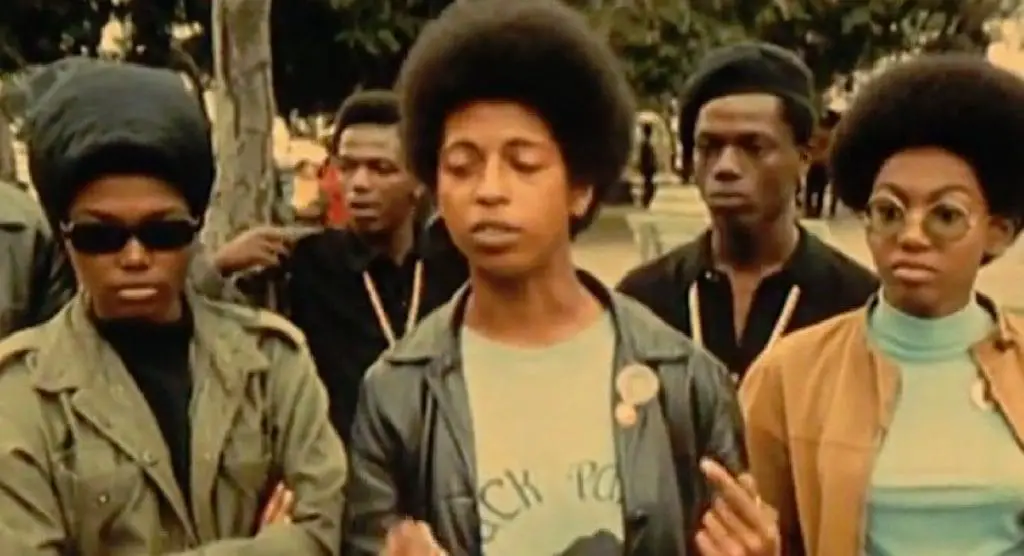
As he stands up, preparing to exit the jam-packed movie theater where we’ve just seen Bad Company – the critically-reviled, Jerry Bruckheimer-produced, spy-themed comedy starring Anthony Hopkins and Chris Rock – James Bamford wears the baffled and battered expression of a man whose just escaped from a raving band of gibbering idiots.
“Oh my God! Who was the technical advisor on this thing – Bozo the Clown?” he wearily grumbles, tossing a backward glance at the credits, still rolling up the screen. Bamford, a Washington-based journalist and expert on the history of modern intelligence gathering – whose investigations into the ultra-secret National Security Agency have spawned two best-selling books, The Puzzle Palace and Body of Secrets – admits to being easily irritated whenever Spy Flicks get the facts wrong, which, he says, is most of the time.
“This movie illustrates everything that is wrong with modern spy movies,” he sighs. “It also explains why I don’t go to the movies that often.”
Well, Mr. Bamford, you’d better stay out of the theaters for the rest of the summer, because Bad Company is just one small piece in a massive, unprecedented invasion of motion pictures that feature spies, secret codes, clandestine government organizations, and/or the threat of nuclear annihilation. It more-or-less started with the May release of The Sum of All Fears – in which C.I.A. paper-pusher Ben Affleck tries to stop a thermonuclear war – and continued with Enigma, a Mick Jagger-produced art-house thriller about over-sexed code-breakers working at England’s ultra-secret Bletchley Park during World War II. The next few months will see the arrival of “The Bourne Identity,” “K-19: The Widowmaker,” and Windtalkers (another WWII code-themed drama), plus “Spy Kids 2,” “Men in Black 2,” “Austin Powers in Goldmember,” and Vin Diesel’s “XXX.” With the exception Steven Spielberg’s aforementioned “Minority Report,” all of these films portray secret agents as heroes, a far cry from the not-too-distant days when films like “Enemy of the State,” “Mercury Rising,” and Hearts in Atlantis gave us sneaky secret agents – often in the employ of the real life National Security Agency – who were patently, unapologetically evil.
These days, they’re the good – guys.
“Let’s see how long that lasts,” laughs Bamford, nursing a late-night cappuccino at a coffee shop near the theater. “Things may change in a few months if the American people find out that the C.I.A and the F.B.I. screwed up real bad. If we get proof that a bunch of Government screw-ups let 9-11 happen, then there might be a backlash against movies that portray intelligence people as heroes.”
Until recently, Bamford served as Washington Investigative Producer for ABC’s World News Tonight with Peter Jennings. A Washington D.C. resident, he’s just finished a semester-long stint as Distinguished Visiting Professor at the Richard & Rhoda Goldman School of Public Policy, at the University of California at Berkeley. He’s also concluding a nationwide publicity tour for the paperback release of Body of Secrets (Anchor Books, $14.95), which contains a brand-new, white-knuckle account of the September 11 attacks, including some revealing minute-by-minute details of the event from the National Security Agency’s point-of-view.
“There seems to be a growing hysteria over the whole terrorism issue,” concedes Bamford. “And movies like Bad Company, and all these others, just tie into that and add to the hysteria. There’s nothing wrong with plain-old-entertainment, but when you begin to think its something other than entertainment, when you begin to think all of it or parts of it are reality, then we’re in trouble.”
The best spy films, Bamford insists, citing such classics as The Spy Who Came in From the Cold, and even the new Enigma, find plenty of drama in real, honest-to-goodness, explosion-free espionage.
“There’s very little violence in espionage,” he says. “Espionage is cerebral, it’s beaurocratic, it’s all about salesmanship.”
“Salesmanship?”
“Basically. A good C.I.A. person is a good salesman,” he says. “What they’re trying to do is to sell the United States to some possible informant who might be tempted towards helping the U.S. Just like in sales, you need a good closer to finalize the deal.”
“Doesn’t sound like much of a Jerry Bruckheimer movie,” I agree.
“It doesn’t. But in reality, it’s just that simple,” Bamford nods. “And it really is dramatic. When an agent swings a new informant, convincing someone to become a traitor and steal their country’s secrets and hand them over, it’s the equivalent of an Air Force fighter pilot shooting down an enemy plane.”
It’s obvious that Bamford holds the business of espionage in high regard. In higher regard, anyway, than the administration currently in control of the country’s clandestine services.
“Espionage is a long, slow business, but it usually works,” Bamford says. “It worked in capturing the bombers of the embassy in East Africa, it captured the first World Trade Center bombers. Instead of sending the Army, Navy and Air Force over to Afghanistan, waging this macho war against the Taliban, the government could have taken the long, slow route that has, most of the time in the past, always proved successful. We might have Osama Bin Laden in custody right now, if we’d had the patience to use our Pakistan informants and other intelligence sources. It might have taken years, but it would probably have worked, and it wouldn’t have cost any American lives – which the action in Afghanistan did, and it wouldn’t have caused so much anti-American hatred around the world.”
Bamford sees irony in the fact so many spy movies of the last decade focused on the scariest aspects of intelligence gathering – presenting the government as a frightening, unstoppable menace, striving to keep its citizens in the dark while taking away all of our freedoms. This at a time when our freedoms were actually being gradually re-enforced, protected from the abuses of the McCarthy and Vietnam eras.
“Now, he says, “so many of the reforms that had been made over the last thirty years are being washed away – but nobody seems to care, because it’s being done gradually. Those reforms were enacted for a reason. It was because these government agencies have abused their power in the past.
“So now,” he continues, “right when our freedoms are disappearing at a rate on one or two a week, the theaters are filled with movies in which the government is the only thing that can save us.”
“With the occasional help of some bankable, streetwise, African American standup comic,” I add.
“Right,” Bamford laughs. “And probably one who can’t act.”
____________________________________________________________
Writer David Templeton takes interesting people to the movies in his ongoing quest for the ultimate post-film conversation. This is not a review; rather, it’s a freewheeling, tangential discussion of art, alternative ideas, and popular culture.


